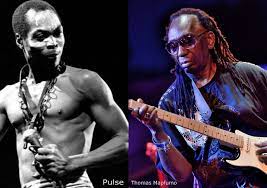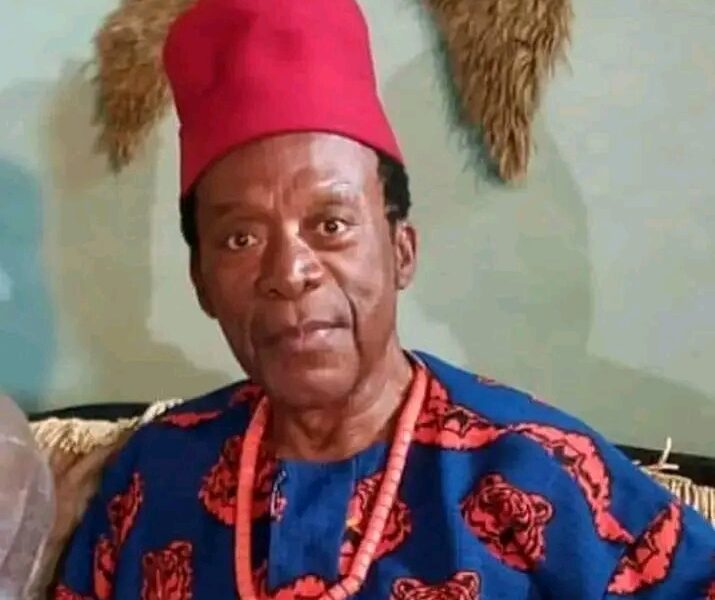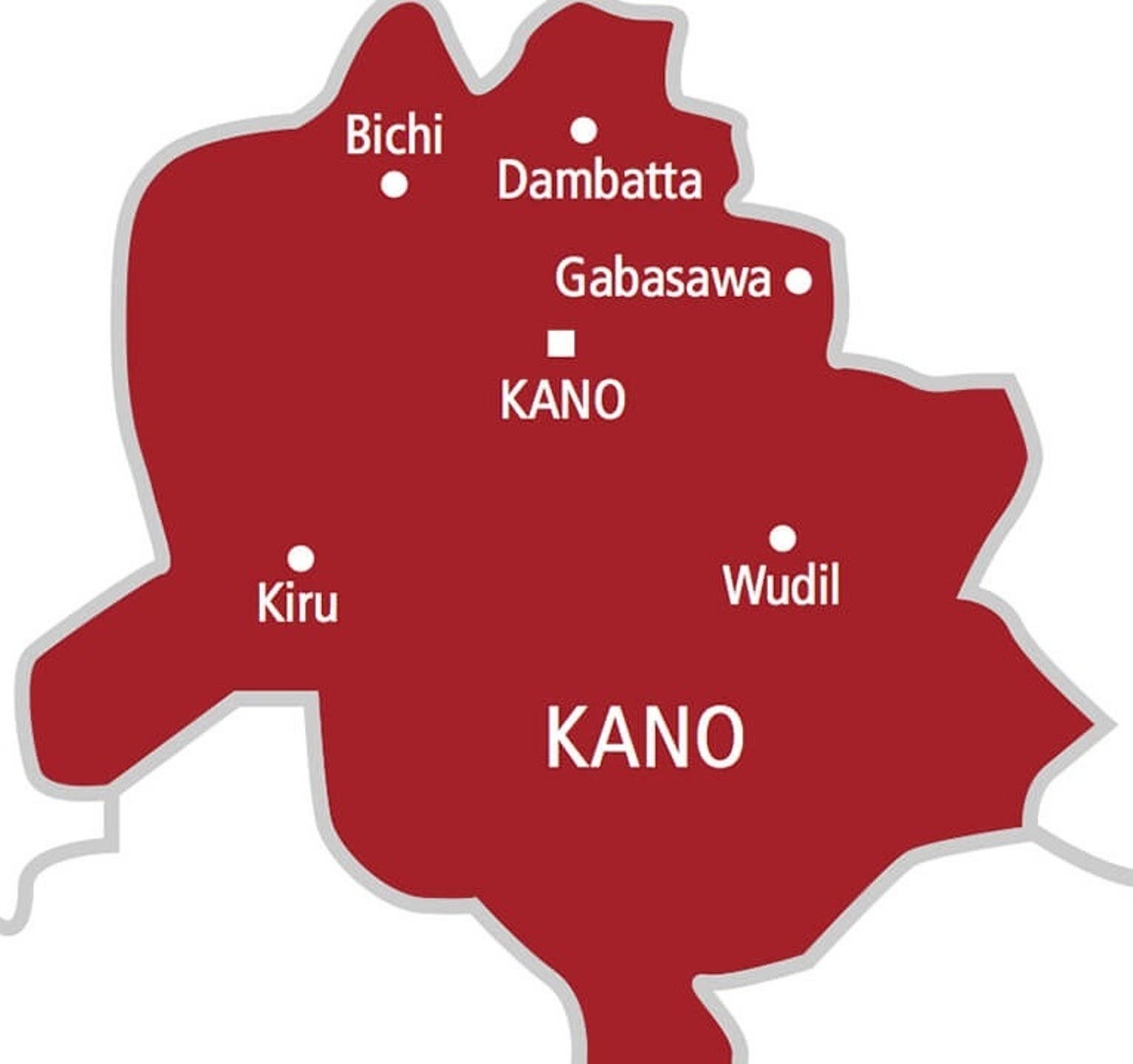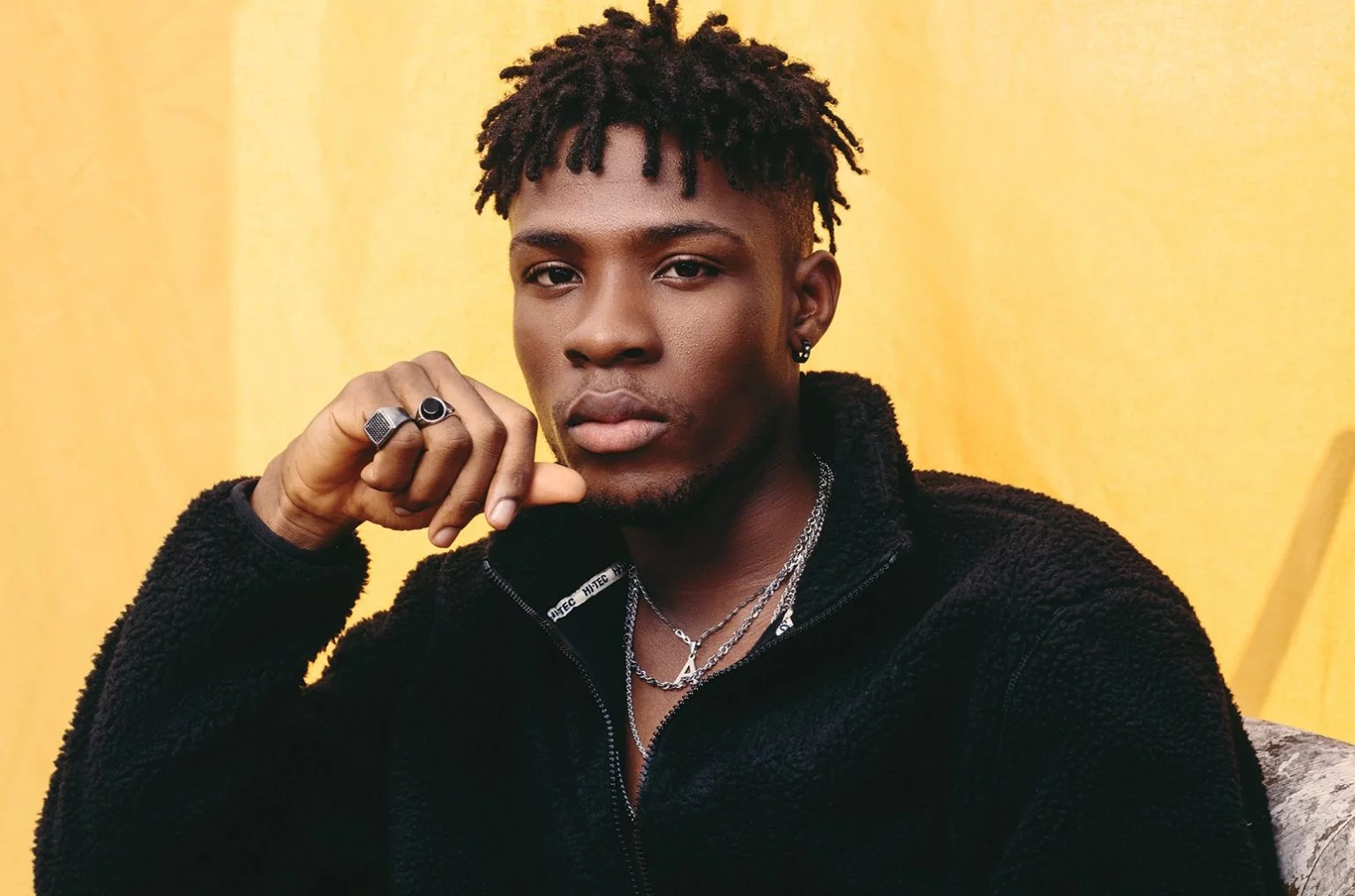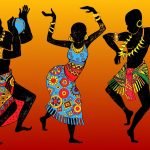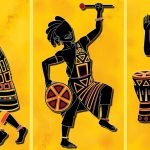Beautiful people and a rich culture abound in Africa. Not to mention its lovely music, it contains many fascinating civilizations. Every culture relies heavily on music, which also aids in defining identity. One way people in Africa celebrate their culture, strength, and variety is via the arts. The music of these performers often stands out and conveys a powerful message. The following article is mostly concerned with African music legends. It includes information about the finest musicians from Africa.
These artists have had a significant impact on how modern African music is made. The musicians comprised of:
1) Femi Kuti of Nigeria
Musician and composer Femi Kuti hail from Nigeria. He is one of the most well-known historical figures in African music. He is renowned for having a strong voice that is heard by many. His approach is distinctive, and he has collaborated with other musicians to create successful songs—something that not many musicians have been able to achieve. His music’s powerful sentiments have had a lasting musical effect on the globe.
The great Nigerian singer Fela Kuti, who passed away in 1997, had a son named Femi Kuti. Even with his band, the son has managed to preserve his legacy and forge his own musical identity despite the fact that his father and he have quite different musical tastes. One of the most well-known and gifted African musicians is Femi Kuti. He was given the name Olufemi Anikulapo Kuti and was born in London, England, on June 16, 1962. At a very young age, he began to perform.
Femi Kuti & His African Beats was the title of the young Kuti’s first album, which was released in 1979. His career as a musician, singer, songwriter, composer, producer and business owner was just getting started. He distinguished himself from his father with his own flair. He had a very different style than Fela’s and was more accessible to the general public, but he preserved some of the classic African sounds that his father had developed. Kuti can convey powerful thoughts in every song he sings because of his very strong voice and rhythm.
Even after the passing of his father, Femi collaborated with several different musicians from across the globe and received over three Grammy nominations in the Best World Music Album category.
Femi is praised for having a distinctive and strong voice. His songs can effectively convey his thoughts since he is a natural singer. This enables him to connect with a large number of people who are moved by his music and apply it to their own life.
2) Miriam Makeba of South Africa
On March 4, 1932, Miriam Tshabalala, best known by her stage name Miriam Makeba, was born in South Africa. She was an actress and singer. Her father worked for the railroad, while Miriam’s mother was a housewife. Even as a young child of seven years old, she had to work hard to provide for her family. Solomon Linda, a well-known South African singer-composer, first noticed her singing ability when she was 14 years old.
Solomon Throughout her career, Linda acted as a father figure for Miriam. His songs, which were performed in their Kwangali language, were inspirational to her. His music became more meaningful to her as she progressed as a performer, and his vocal style had a greater impact on her future career.
She had instruction in Broadway, opera, Brazilian music, and classical African music, among other genres. When Miriam formed her jazz band, the Skylarks, it gave her her first significant break in the entertainment industry. “Miriam Makeba,” her first album with the Skylarks, was released in 1960. She then went on a tour of Germany after representing South Africa at the World Expo in Brussels, Belgium. This went on for around three years until she moved to England.
Later, Miriam received an invitation to the Montreal World Youth Festival from her friend Harry Belafonte. While performing, she got to know several worldwide celebrities, like Louis Armstrong and Al Jarreau. At the “Monterey Worldwide Pop Festival,” she traveled to Paris and recorded with other international celebrities, including Ray Charles and The Supremes. Other artists have been greatly influenced by Miriam’s music. She was known as “Mama Africa” and the recipient of several awards and honors.
3) Franco Luambo Makiadi of Congo
Franco Luambo Makiadi, best known by his stage name Franco Luambo, was born in the Democratic Republic of the Congo in July 1938. (DRC). He was the six-year-old son of a minor chief who passed away. Early on, he only participated in a local dance company as a dancer, which allowed him to get his start in music.
He then began performing for other ensembles, which finally inspired him to launch his own band. Franco founded the “OK Jazz” band with his group “Rumba Stars” in 1954, and this group would ultimately transform the African music landscape. After introducing the globe to Congolese popular music, OK Jazz became a cultural and political phenomenon in the DRC. In 1959, they even made a tour of towns in France and Belgium. This significantly increased awareness of the Congo and the Congolese people.
Franco started working on an “Independence Cha Cha album” in 1961. The song addresses political subjects intended to promote independence. All throughout Africa, even in former Belgian colonies like France and Switzerland, the song was performed. After independence, this record will cause political issues in the Congo.
He blended traditional Congolese Rumba music with the music he produced there. His aesthetic has an impact on other African nations as well as on popular music in Africa.
4) Oliver “Tuku” Mtukudzi of Zimbabwe
Oliver Mtukudzi, popularly referred to as “Tuku,” was born in Harare, Zimbabwe, on September 22, 1952. He was a musician who used pipes and stringed instruments in his distinctive singing style to great success and recognition. He was a huge hit with his followers because of his captivating stage appearance. Tuku’s talents extended beyond music; he was also a poet, political activist, actor, and humanitarian.
During his lifetime, Tuku’s music spread far and wide across Africa. As a result, he was able to have significant influence in a number of African nations, including Zimbabwe, Malawi, Zambia, and South Africa. In 1977, he became well-known by performing with his band, “Wagon Wheels.” His name has spread over the globe on his own. His music is most well-liked in Zimbabwe, but it has also drawn interest from neighboring nations and a worldwide audience.
He has spent a lot of time and effort on humanitarian assistance initiatives and is a highly powerful person in Zimbabwe. He continues to be regarded as one of the key figures in African music.
5) Mulatu Astatke of Ethiopia
Mulatu Astatke is an Ethiopian native who was born in the city of Jimma in 1943. As the “father of Ethio jazz,” he is well-known. He is also highly renowned for being an accomplished guitarist and violinist as well as a well-known composer. His compositions emphasize the indigenous rhythms and melodies of Ethiopia and other African nations.
The trumpet, flute, saxophone, and other instruments are all used in Astatke’s musical approach. Along with other well-known performers from the continent, he has sung successful songs including “The Radcliffe” and “Yekatit.” His music had a significant impact on the growth of jazz in Africa. Many artists and fans throughout the globe are familiar with his musical approach.
The music of Mulatu Astatke has had a significant impact on Ethiopian culture as a whole. Many musicians and artists throughout the globe have been influenced by his music. He has given performances all around the globe and even shared a stage with Paul Simon in Central Park, New York. One of the most important African artists of all time is considered to be Mulatu Astatke.
6) Youssou N’dour of Senegal
On October 1, 1959, Youssou Ndour, a well-known musician and composer, was born in Senegal. His music focuses on social challenges and incorporates African jazz, electronica, and the indigenous sounds of his own country. He often utilizes music to promote political activity. He is renowned for doing concerts in front of a diverse audience to enable them to comprehend and value the ideas included in his songs.
Youssou Ndour plays a wide range of musical genres. His sound has been described as Senegalese urban music because it combines contemporary sounds with ancient African rhythms. His ability to reach so many different audiences via his work has contributed to his international notoriety. Through his music, Youssou Ndour has been able to connect with a wide range of individuals throughout the globe who, regrettably, have heard about the suffering of the African continent.
The Grammy Award, the World Music Awards, and the Cesar Award are just a few of the distinctions and awards that Youssou Ndour has earned. Even two Academy Award nominations were made for him. Many new artists still hold Youssou Ndour in high regard as a hero because of how significant his music is to the music industry. He was a really interesting man and musician.
7) King Sunny Ade of Nigeria
In Osogbo, Nigeria, on September 22, 1946, Adeniyi Adegeye, best known as King Sunny Ade, was born. He is a well-known Nigerian highlife artist who has put out a lot of albums and songs throughout the course of his career. In Nigeria, King Sunny Ade was a highlife pioneer. He was successful at fusing Western and Nigerian music. His song had a significant impact and gained popularity over the whole African continent.
After the passing of his father, King Sunny Ade gained notoriety and adopted the title of “King.” This increased his popularity since his moniker gave him the air of a monarch. He is regarded as one of Nigeria’s most influential artists of all time by many people there.
He was able to skillfully blend Western and Nigerian music, which contributed to his rise to fame. Highlife is the name given to King Sunny Ade’s particular kind of music since it included all the other musical genres that were well-liked in Nigeria at the time, including jazz and swing. He created a lot of songs with English lyrics as well. He performed piano and guitar, but eventually honed his drumming skills, and his famous song “Joromi” catapulted his music to worldwide fame.
King Sunny Ade’s music continues to make people happy all over the globe. Other recording artists like Stevie Wonder and Manu Dibango from Cameroon have performed on stage with him. Additionally, he has collaborated with other renowned Nigerian musicians and artists. King Sunny Ade is still well-liked in various nations throughout the globe.
8) Salif Keita of Mali
Salif Keita is a Malian singer, songwriter, multi-instrumentalist, and record producer. He is regarded as the most well-known Malian musician in the whole globe. Since 1975, he has put out a number of albums and has sold millions of records all over the globe. His music is renowned for its fusion of Latin music rhythms, Western folk and blues genres, and traditional African music.
Salif Keita was born to a royal family on August 15, 1949, in Djoliba, Mali. He is an accomplished musician and lyricist who has found enormous success with his songs and words across Africa, particularly in Mali, Senegal, and Burkina Faso. Salif Keita is regarded as one of Africa’s most important artists and has gained enormous popularity outside.
Keita consistently strives to include several musical styles, such as West African, Soul, Latin, and hip-hop, in his works. He incorporates contemporary technologies into his songs and performances to provide a feeling of newness and originality. The music of Salif Keita is often cited as having a significant impact on the African continent. He was recognized with the largest musical prize for Best World Music at the 2010 Victoires de la musique because of how significant his work is.
He is regarded as the greatest African musician of all time and is very well-known for his inventive and passionate musical style. However, the musician, who was popularly recognized as the “Golden Voice of Africa,” ceased performing in November 2018.
9) Fela Kuti
Before reading our definition of Fela Kuti if you’ve never heard of him, you should be aware that he was a genius. He was a leader who, above all, understood the power of music for all people and exploited it to effect change. With his wonderful music, he defied expectations and social norms and made sure to always include everyone in his universe, which caused his popularity to soar very quickly. He had a reputation for being a braggart, but that was only because he was confident in his actions. One of Fela Kuti’s most astonishing qualities is that he had his whole life to live on earth and yet still managed to encounter so much excellence.
Fela dedicated his whole life to what he loved most – music. His relatively well-off parents had a hard time accepting Fela’s musical abilities. They thought he ought to be doing something more significant than what he was planning. When all other attempts to prevent Fela from becoming a musician failed, his father disowned his son. Even though Fela Kuti was going through a really difficult period, he persisted in following his ambition.
Fela was unconcerned about one man’s opinion since he was aware of how many more people valued his music. Even when it was difficult for him to see any progress, he persisted in doing what he loved. Fela Kuti had no money at all when he completed school and started working full-time in his music career. He previously performed music for cash while living on the streets. He made sure to play for as many people as he could, however, since he was so determined to be heard. It took him some time to become famous, but when it did, it did it with enormous force and splendor.
Fela Kuti’s legendary status as a musician has been cemented over time by the strength of his voice. At the time, he used to speak out against societal inequalities in Nigeria. Depending on the emotion he sought to capture in his music, he used to play a variety of instruments. The words of Fela are a little hard to grasp at first, but once you get into them, they are quite powerful. He addressed topics relating to the government and its corruption in his songs. He also covered other subjects in his work, such as racism and women’s rights.
10) Ali Farka Toure
Ali Farka Toure One of the most important characters in Mali music is Toure. At Radio Mali, where he began his job as an engineer, he first encountered music. Ali played alongside his brother and father, who was also a musician. Toure rose to fame in Europe and Mali in the early 1990s. With his music, he was able to reach out and touch the hearts of listeners, and Toure was joined by other musicians in creating this incredible sound.
Toure worked on several projects with other artists and had a significant impact on many of them. In Mali, Toure’s music wasn’t always well-liked and many people didn’t first find it appealing. But because of this, Toure’s music was able to gain popularity. Ali Farka Toure traveled to other nations and performed in front of large audiences rather than being well-liked in Mali. He was aware that if he could use his music to touch the hearts of many people, he would be able to change their lives.
Ali Farka Touré was a talented musician who poured his heart and soul into all of his endeavors. Toure became well-known through fusing music from many different cultures. He combined various elements of several musical genres to create something fresh while staying faithful to its origins.
Ali Farka Toure was the type of musician who didn’t give a damn about his social standing or whether or not he would be liked in his own nation. He was adaptable and had a fantastic ear for music, particularly when he wished to improve things for his people. He worked with several other artists and rose to fame as one of the greatest musicians of all time.
Finally
The top ten African artists of all time are skilled and innovative, and they have a unique gift for uniting people. Many of these artists take great care to leave a lasting legacy for their nation since they have strong ties to it.
The list of musical legends includes Fela Kuti, Ali Farka Toure, Salif Keita, and Femi Kuti. From a very early age, these musicians have been a part of history. They are well-known and have contributed to the greatness of their nations thanks to their love of music.
Get Latest New News Here, Were Are Updating 247 >> Six9ja News<<
Do you find Six9ja useful? Click here to give us five stars rating!
